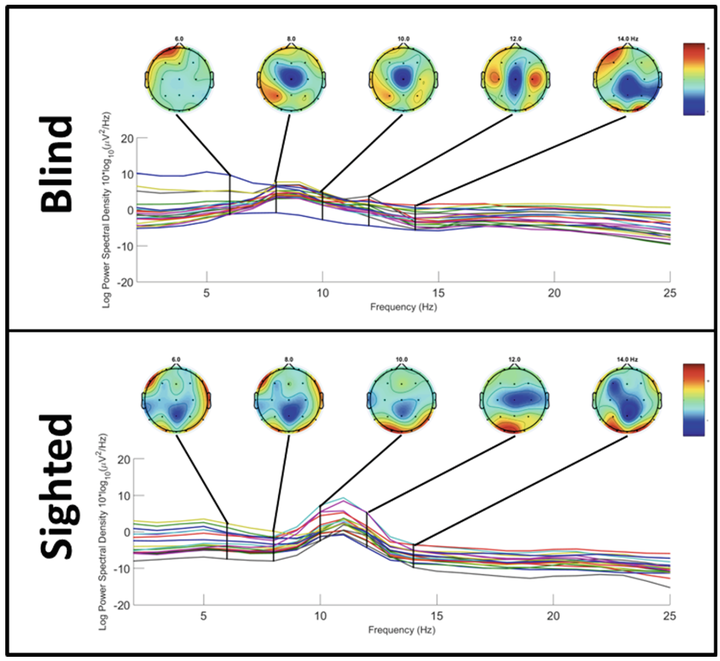Deployment of a mobile wireless eeg system to record brain activity associated with physical navigation in the blind: A proof of concept

Abstract
Little is known about how the brain processes information while navigating without visual cues. Technical limitations recording brain activity during real-world navigation have impeded research in this field. We have developed a study paradigm that benefits from wireless EEG recording technology. Participants heard a sequence of directional commands instructing them to physically or mentally navigate a 3 × 3 m grid. Data from a sighted control and an individual with profound blindness highlight the viability of the technology. A power spectral density analysis on the alpha frequency band during the physical navigation task revealed diffuse signal fluctuations for the blind participant, while a more robust signal within occipital-parietal regions was seen for the sighted control. Both participants displayed highly similar signal fluctuations during mental navigation. This work demonstrates the feasibility of brain activity recording during navigation-related tasks using a wireless EEG system for identifying brain processing patterns associated with visual experience.